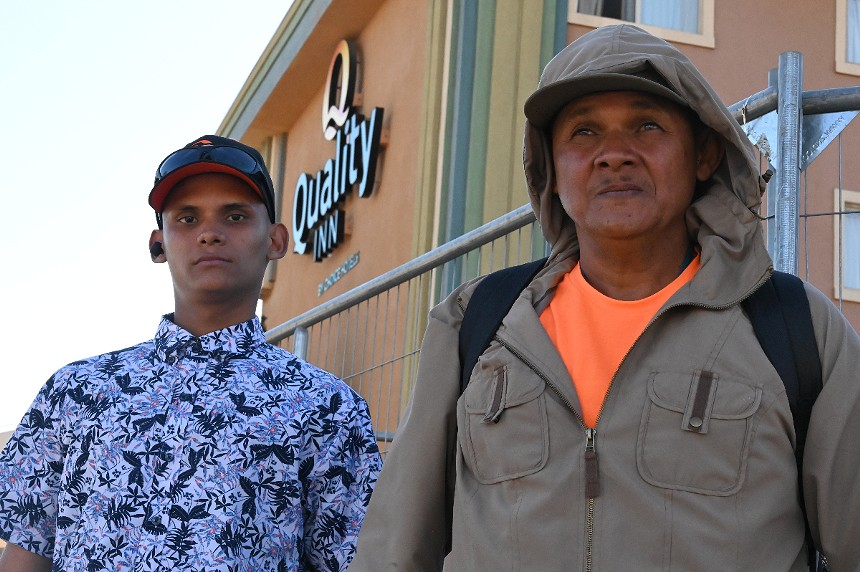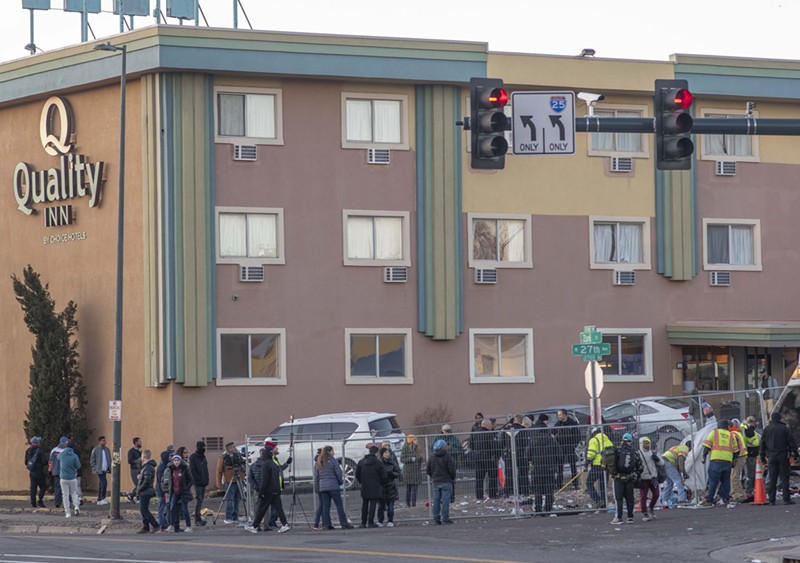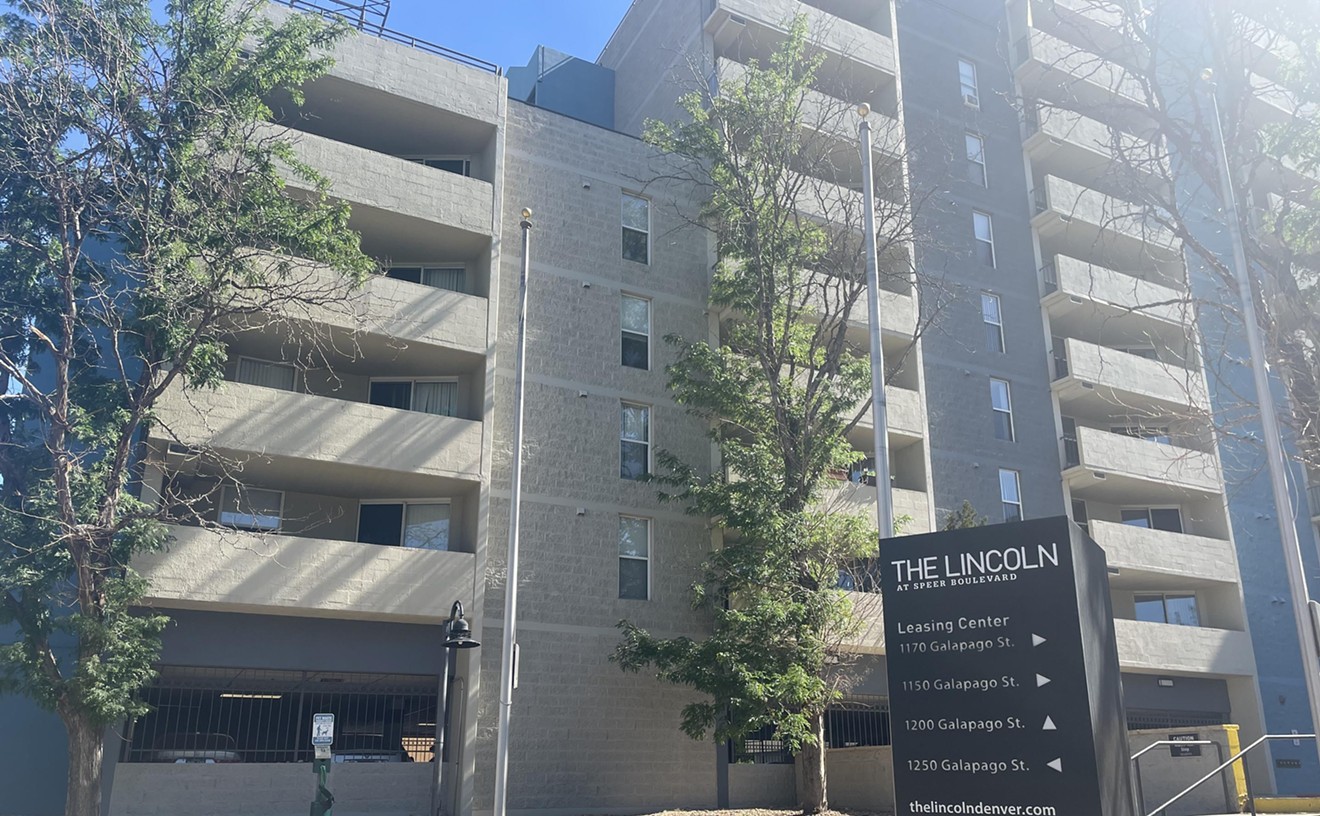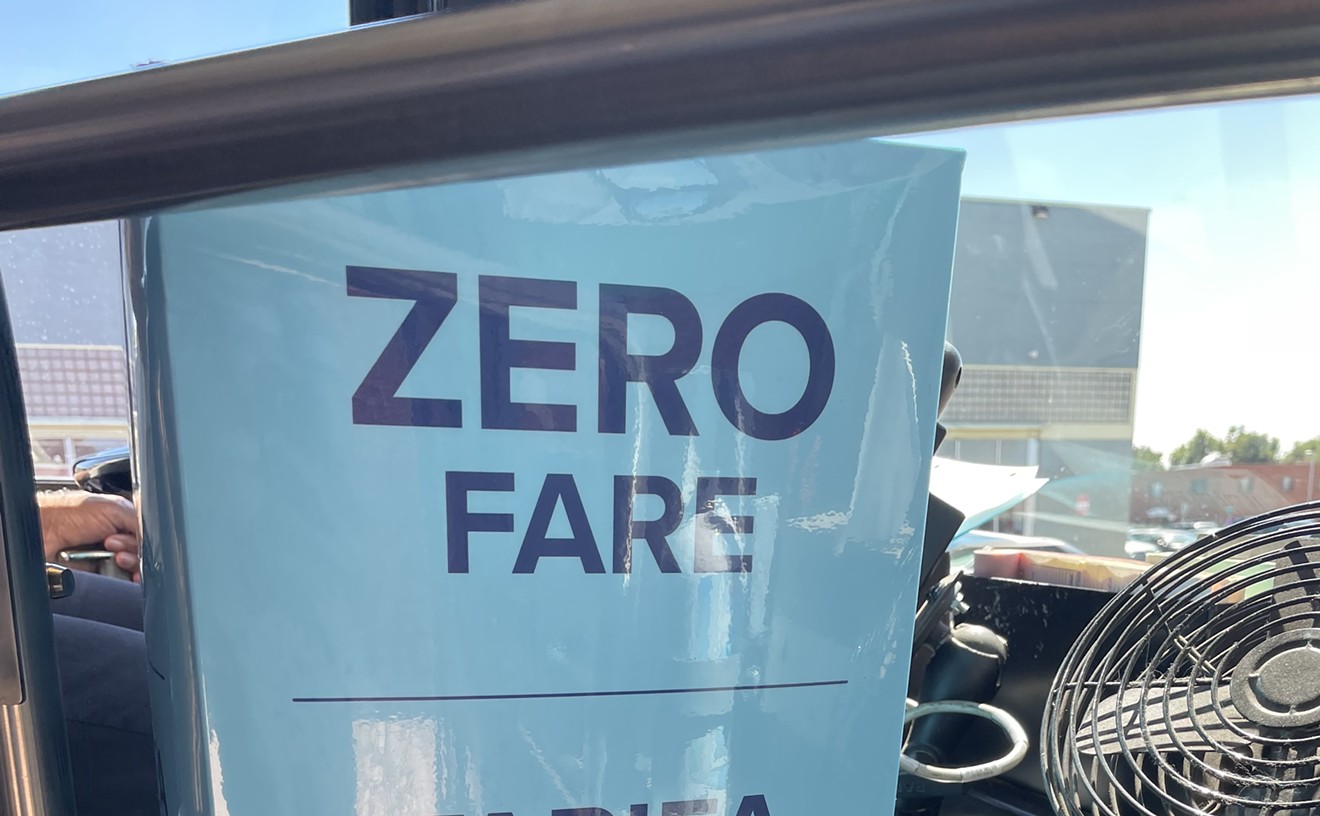"We've moved into the next phase of our response," says Jon Ewing, the Denver Human Services spokesperson. "It was a huge labor of love. We've been moving folks for the last two months or so out of that facility."
More than 42,000 migrants, mostly from Venezuela, have arrived in Denver since late 2022, and the city has spent more than $72 million to feed, shelter and transport them. But instead of continuing to rely on city shelters, the city now connects migrants with housing provided by nonprofits, apartments for lease or residents willing to host migrant guests.
New migrant arrivals can stay in two non-congregate shelters for 72 hours and then either go to another city or work with nonprofits to get housing. According to Denver Human Services, only eight migrants are staying in city-operated shelters as of July 1, and none were there over the weekend.
A slowdown of migrant buses allowed the city to close the last hotel converted into a migrant shelter, a Quality Inn at 2601 Zuni Street. In January, the shelter had upwards of 700 guests, but the hotel had about 200 migrants left at the start of last week.
"In the last three weeks, we've been at a sprint to move the remaining 200 to 300 people out of the facility and into housing," Ewing says. "They went to a little bit of transitional housing, but they're all getting house keys, they're all moving out."
"In the last three weeks, we've been at a sprint to move the remaining 200 to 300 people out of the facility and into housing," Ewing says. "They went to a little bit of transitional housing, but they're all getting house keys, they're all moving out."
In January, Denver was sheltering 5,000 migrants during cold weather that prevented the city from discharging anyone. Only four buses arrived in June bringing migrants from Texas, however, compared with 144 buses in December. The city is now receiving six migrants a day on average, Denver Human Services notes.
"Hotel sheltering is amazing, and we needed it for months and months and months, especially when we were seeing eleven or twelve buses arrive per day," Ewing says. "It doesn't make sense when you're seeing six people arrive per day and you've changed your entire strategy."
Mayor Mike Johnston started closing migrant hotels in late February, a move he said would save the city $60 million. He later announced in April that he would restore DMV and Parks & Recreation services that were cut to pay for migrant services; this was paid for by closing two more migrant hotels, but he also shifted from an emergency response to investing in getting migrants work permits.
Denver also started seeing fewer daily migrant arrivals while it shifted away from hotel shelters during the past two months. The city's length-of-stay policy only allows migrants to stay at those shelters for a maximum of 72 hours, down from the three weeks it used to offer. Ewing attributes the slowdown of arrivals to city liaisons in El Paso who told migrants that Denver now offers fewer services, and to a drop in migrants arriving at the southern border.
"We're really just not seeing many people," Ewing says. "Everyone is seeing an enormous slowdown at the border. You're seeing 40 to 50 percent less people arriving at the southern border, so we're seeing fewer people in Denver."
In early June, President Joe Biden issued an executive order that prohibits migrants from gaining asylum if they cross the border illegally first, and allows border officials to turn more migrants away at the border. According to Ewing, this is "absolutely" a factor in the decreasing arrivals.
Ewing isn't sure how much the closure of all the migrant hotels will save the city, but the city pays hotels about $90 per room per night, he says.
"When you have hotel shelters, there are all kinds of costs associated with it," he says. "Whether you're renting three rooms or 300 hundred rooms, you have to have staff 24/7, you have to have security 24/7, you have to make sure the meals are arriving like clockwork, and then you have to pay vendors to provide those meals. They can be very expensive."
The city now operates only two congregate shelters: the Denver Community Church and a warehouse converted into a shelter. The latter location will also host Denver's new intake center, where it will greet migrants, tally them and connect them to the services they need. The city doesn't want the warehouse's location published, in order to protect migrants there.

Raul Mendoza, a Venezuelan migrant, and his son, Raul, stayed at the Quality Inn on Zuni Street in January before being discharged.
Bennito L. Kelty
As of July 1, only two migrants were staying at the warehouse, while six were at Denver Community Church. The city doesn't include the several dozen migrant families at the Mullen Home in its count, though city funds are sent to Catholic Charities operating the Mullen Home for a handful of costs.
Migrant Population in Denver
The migrants still in Denver are likely to stay and start new lives in the Mile High City, Ewing says.
"The mayor likes to say 'We'll have our own Little Venezuela in a few years.' I really like that idea," Ewing says. "I like to think a lot of those people will put down roots, especially after they're work-authorized."
Ewing says that nonprofits like Papagayo and Vive Wellness have housed about 8,000 migrants through rental assistance and in partnership with the city. About 800 migrants have units of their own through the Denver Asylum Seekers Program, which pays for six months' rent and job training.
Since February, the city has helped more than 2,300 migrants get work authorization, "so they can usually work in a matter of weeks," Ewing points out. Those migrants have been able to work and get into housing, but nonprofits assisted them with their first months' rent and deposits, he adds.
The city still occasionally rents rooms at the Comfort Inn on Peoria, a former migrant hotel that the city gave up in early April, for migrants who need to be quarantined for illness.
If needed, the city is ready to buy hotel rooms again, according to Ewing.
"In three, four months, there's no telling" what could happen, he says. "We could see an uptick at the border, we could see an increased demand for services." The presidential election in November can also affect migrant arrivals.
Ewing says he's not sure how easy it is for hotels to return to business as normal after operating as a migrant shelter, but "all I can say is thank you for letting us have it for a year and a half."












